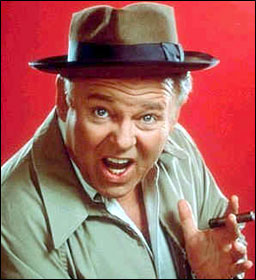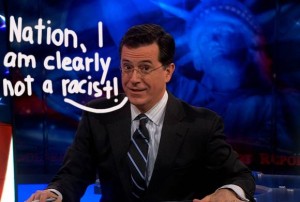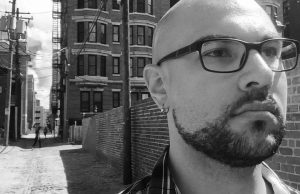The Colbert Report and White Privilege: Satire I don’t believe in
By Michelle Medina
I am a fan of The Daily Show. I am a fan of Jon Stewart and his cultural resistance to the status quo and holders of social power. In fact, I watch his show religiously with my daughter. We anticipate the next instance where he will speak truth to power. A show known for its diversity of comedic writers that has made a name for itself through satirizing racism, sexism, and class-based ideologies, The Daily Show advances discourses. The Daily Show draws our attention to political perspectives from the margins of America.
However, I am not a fan of The Colbert Report. Although both The Daily Show and The Colbert Report are on Comedy Central, the two have very different ideas of what is humor and satire. My daughter often asks me why I don’t appreciate Colbert’s work, since they seem to follow the same script: host behind desk covering the news with satire. “I don’t find him funny,” I would answer without analyzing why, until the recent Twitter campaign #CancelColbert and the ensuing backlash against the woman behind it.
Colbert’s bigoted character, with his regurgitation of racist and conservative banter has always been off-putting; for me, he is not funny or enjoyable to listen to or laugh at. Sure his jokes may be met with applause. And yes, I intellectually understand his ‘aim’ and his “intent,” but his humor falls flat for me.
Much like Archie Bunker’s character in All In The Family’s, it’s creator Norman Lear was a proud liberal, who hoped the American audience of the 70s would embrace Archie Bunker’s character but reject his beliefs. Americans did embrace Archie Bunker by the droves with more then 60 percent of the TV viewing public tuning in weekly to watch the nation’s “lovable racist” use slurs like “coons” “spics” and “fags.” As Emily Nussbaum writes, Archie Bunker “managed to defy his creator, with a “Frankenstein”-like audacity.” America’s most beloved character of all time is a foaming at the mouth bigot who purportedly spotlighted the evils of racism, sexism, and homophobia. Yet, “Audiences liked  Archie,” noted Saul Austerlitz. “Archie was TV royalty because fans saw him as one of their own.”
Archie,” noted Saul Austerlitz. “Archie was TV royalty because fans saw him as one of their own.”
While its often noted that comedy is a vehicle for change; it also works to facilitate stagnation. Humor acts as a catharsis for many people’s internalized prejudices that can’t be freely expressed in ‘polite society’ but can be expressed in the socially acceptable medium of laughter (‘because we didn’t mean it’). Spike Lee’s film Bamboozled highlighted how jokes and humor are never neutral or innocuous but poignant weapons; that laughter is conditioned by social norms that we collectively believe in. Liking Archie, under the shroud of humor, allowed cultures of whiteness to feel guiltless as they affirmed racist, misogynistic and homophobic violence and beliefs.
Creating a hateful and immoral character endearing is not new if we think about what Nussbaum points out as an American tradition ‘to regard the antihero as a hero.’ If someone dares to spotlight a violent culture that normalizes the bullying of minorities and women, well you best beware of the wrath of those asked to self reflect. Nussbaum notes:
Some of the most passionate fans of The Sopranos fast-forwarded…to freeze-frame Tony strangling a snitch with electrical wire…I labeled these viewers “bad fans,” and the responses I got made me feel as if I’d poured a bucket of oil onto a flame…Truthfully, my haters had a point: who wants to hear that they’re watching something wrong?
Amid the longstanding debate about the potential and limitations of comedy in fostering justice, many have defended Colbert, suggesting that the Twitter post was taken out of context and if one goes to see the show in its context it makes perfect sense. The tweet and the joke were both insulting depictions of Asians and Asian Americans and trotted out one of the most tired and unfunny jokes about Asian accents although greeted to raucous laughter.
As Jay Caspian Kang notes,
There’s a long tradition in American comedy of dumping tasteless jokes at the feet of Asians and Asian-Americans that follows the perception that we will silently weather the ridicule. If I were to predict which minority group the writers of a show like “The Colbert Report” would choose for an edgy, epithet-laden parody, I’d grimace and prepare myself for some joke about rice, karate, or broken English. The resulting discomfort has nothing to do with the intentions of the joke or the political views of the people laughing at it. Even when you want to be in on the joke—and you understand, intellectually, that you are not the one being ridiculed—it’s hard not to wonder why these jokes always come at the expense of those least likely to protest.
 Much like MADtv’s “comedic” depiction of Miss Swan, whose broken English and heavy accent directly imply her inherit stupidity, Colbert’s white racial humor panders to the American pleasure of laughing at minorities. In this most recent case, the question of Native American mascots was the mere vehicle to give white audiences permission to mock another minority group guiltlessly and even ‘for a good cause’.
Much like MADtv’s “comedic” depiction of Miss Swan, whose broken English and heavy accent directly imply her inherit stupidity, Colbert’s white racial humor panders to the American pleasure of laughing at minorities. In this most recent case, the question of Native American mascots was the mere vehicle to give white audiences permission to mock another minority group guiltlessly and even ‘for a good cause’.
One has to ask whether the audience’s amusement at Colbert’s squinty-eye-impression and broken accent is good ol’ fashion racism or the laughter garnered from the audience is from an elevated understanding of the complexities of racism and its daily microaggressions experienced by members of the AAPI community. Perhaps Colbert’s caricature triggered laughter out of an understanding of the historical racism that has been part of the American Way since the Chinese Exclusion Act of 1882, the first and only time an entire ethnic group was not allowed to step 
Still many have argued that The Colbert Report’s mocking of Asians is not racist or even racial (as evidenced by this article in Jezebel and HuffPost Josh Zepps’ recent coverage and attack on Park), but rather a noble attempt at saving a ‘more deserving’ marginalized group. If the aim was to denounce the R***kins mascot, Colbert failed miserably. Yes, it may be an attempt at satire but it failed to deliver a transformative or progressive message and only normalized the historical mascot-making of Asians in American popular culture.
Colbert’s impersonation of stereotypical ‘Asian-face’ and speech is not only hurtful but also violent given its material consequences. In 1992, D. L. Rubin’s experimental study divided students into two groups of white listeners and asked them to rate a 4 minute audio lecture of the exact same speaker with the only difference between the two groups being that one group was shown a picture of a white woman and told she was the speaker while the other was shown a picture of an East Asian woman. The listeners who believed that the speaker was Asian claimed to hear a “foreign accent” and had difficulty understanding her. Despite hearing the exact same audio, Rubin’s study highlighted how people feel less responsibility to listen to Asian voices (and thus perspectives) based on our latent stereotypes that we undoubtedly receive from popular culture. Thus, it’s hard not to think about how Colbert further contributes to the mentality that believes Asian Americans are not worthy to be heard, especially if they aren’t making us laugh.
The blurry line between Colbert’s character and the privilege that it hides behind is convenient. “It wasn’t me, I am not racist,” Colbert claimed, in earnest this week because it was just a joke after all. He’s just playing a part. “It’s not real.” But for Suey Park and countless others, it has been all too real. Evidenced by the racist comments, efforts to publicly expose Suey Park’s personal information, rape and death threats, this “good and fun humor” has been anything but good fun and a joke, it’s been terrorizing, its been traumatic and it has been a weapon.
“Based on the hundreds of slur-laden, misogynistic, and violent tweets hurled at me by Colbert fanboys and ‘feminists’ over the last 23 or so hours, no, these terms are not post-racial props for ironic humor,” says Christine Yang. “They’re current, 100% earnest, and still just as painful to endure and being used by the same scores of Americans watching and defending Colbert.” Although Colbert and his fans have persistently argued that he is “under attack,” to be the true victim, reality paints a different picture. Presumably, neither he nor his fans have received death threats.
Yang, a social activist and graduate student who is currently working on a Master in Social Work focusing on trauma, was one of many that received rape and death threats on twitter:
The prevailing argument in defense of Colbert’s usage of ‘Ching Chong Ding Dong’ states that the intent behind it was to jab at Dan Snyder. But where in the imagery does the intended target appear? Was there really no other way for him [Colbert] to make his point and also be funny, without endorsing the slurs that have been used earnestly against me, literally throughout the entire last 23 hours? I’m wondering why we’re so concerned about intent, while completely denying and erasing [its] impact. Colbert not only dragged into the conversation yet another marginalized group, but he used slurs that force many of us to relive the violence and shame to which we’ve been subjected our entire lives.
This has been commonplace. Colbert’s defenders have dismissed the criticism and instead ridiculed, mocked, and demonized those engaged in these critiques. For example, HuffPost Live host Josh Zepps called Park’s opinion “stupid” on his show. Zepps silencing of Parks is but one example of the many ways that communities of color continue to be demonized for “whining like victims” when speaking truth to power. This exchange is one of many examples of how the #socialmediasilencers have sought to punish Suey Park and others. As noted by Brittney Cooper, “People implied that “Asian Americans were just being hypersensitive and overreacting to something designed actually to help…If Colbert had used the N-word instead to prove his point about Natives, we would have been outraged. And we would have seen #CancelColbert as the only appropriate response.”
Even as Colbert situated himself as the one “under attack” this week, he is the highly paid privileged white man on TV whose focus rests with pleasing his audience. An audience that is laughing at his racist misogynistic character and in many ways, living vicariously through him, sharing more of the beliefs of Colbert’s character than they are likely to admit openly. Evidenced by the rape and death threats and the blind defense of Colbert by many white feminists and liberal white men, Park and Yang’s points on white supremacy, misogyny and racism, although pointed to as ridiculous, have been proven more right than ever.
The Colbert Report doesn’t depart far from the historical traditions of white American entertainment to mock and laugh at minorities, perpetuating systems of social oppression, from the minstrel shows to characters like Archie Bunker and Colbert. Racist white characters like the one on The Colbert Report will always be in demand in America, especially if it’s possible to package it in “good” politics from the mouth of ‘a white savior’. If you don’t know why Dave Chappelle walked away from a lucrative career as a stand-up comic after watching a white man in the audience laugh “way too hard” at a joke, I encourage you to find out why. We as audience members and viewers are accountable for whom we are laughing at and why we are conditioned to think it’s funny because it’s just too easy in America today to say, “I’m not racist! So shut up and let me continue to be racist because it’s fun!”
_________________________________
 Michelle Medina is a documentary filmmaker and journalist. Graduate of Smith College and Fulbright alum, Medina is currently living in Casablanca with her daughter and writes about intersections of race, religion and gender.
Michelle Medina is a documentary filmmaker and journalist. Graduate of Smith College and Fulbright alum, Medina is currently living in Casablanca with her daughter and writes about intersections of race, religion and gender.





Pingback: The Colbert Report and White Privilege: Satire I don’t believe in | thefeministblogproject
Pingback: The Colbert Report and White Privilege | The RadiantMedina and the Author of Sheep